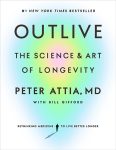
Review by Kevin Brown
The New York Times Book Review used to have a question in their weekly interview with authors where they would ask that author what book the President should read. The answers were often rather enlightening, but they became more political when Donald Trump was in the White House, which is when, I believe, the newspaper stopped asking the question. Matthew Desmond’s book would be a good answer, no matter who the President is, so I’m sorry that question isn’t there any longer.
Desmond lays out a solid argument that the poverty in America isn’t accidental, and it isn’t a result of laziness on the part of those who are poor. Instead, poverty is due to a concerted effort by politicians and corporations. The policies in the U.S. create poverty and keep people in that situation under the guise of a scarcity of resources. Similarly, corporations claim they cannot afford to pay workers more or they will have to charge consumers more for their products, all while recording record profits and bonuses for CEOs.
Desmond doesn’t let the average reader—white and at least middle class—off the hook, either. He points out that many government benefits actually make life better for people who are not poor—whether that be the ability to write off mortgage interest or zoning laws that drive up housing prices—not those who need the most help.
Thus, he calls on readers to vote and act in such a way to help alleviate poverty, especially by supporting companies that actually pay their employees a living wage (he doesn’t name particularly egregious businesses, such as Amazon, but they readily come to mind). However, real change has to come at the policy level, as poverty is, in fact, by design, so the solutions will need to be, as well.
Poverty, by America by Matthew Desmond. Crown, March 2024.
Reviewer bio: Kevin Brown has published three books of poetry: Liturgical Calendar: Poems (Wipf and Stock); A Lexicon of Lost Words (winner of the Violet Reed Haas Prize for Poetry, Snake Nation Press); and Exit Lines (Plain View Press). He also has a memoir, Another Way: Finding Faith, Then Finding It Again, and a book of scholarship, They Love to Tell the Stories: Five Contemporary Novelists Take on the Gospels. Twitter @kevinbrownwrite








